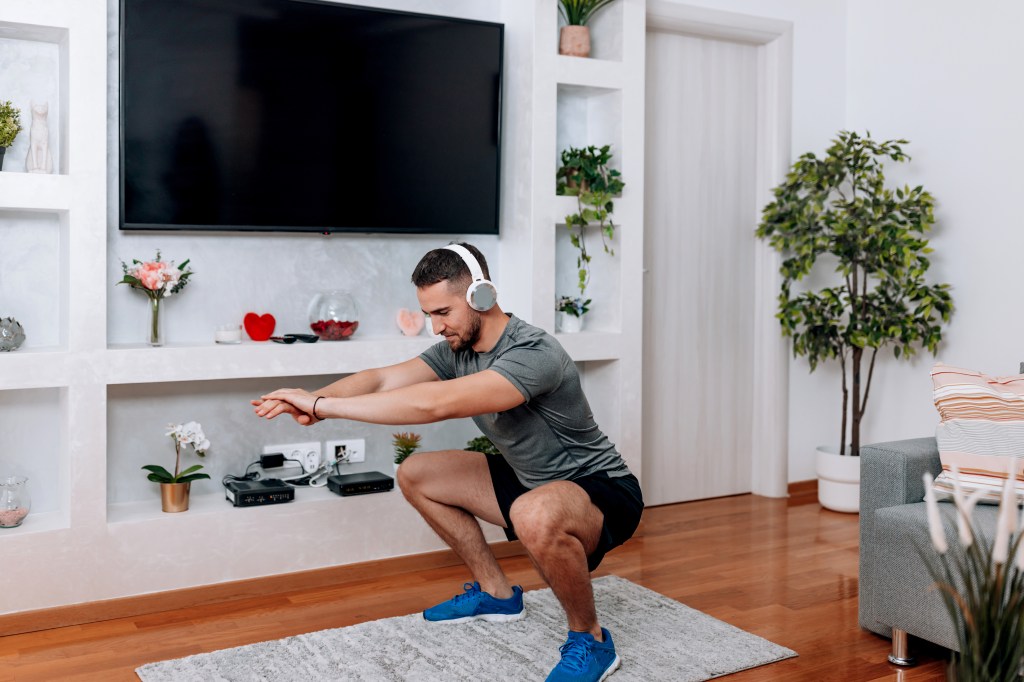How one minute of squats daily can boost your brain health
Drop it low — it’s good for your health.
New research suggests that just one minute of squatting exercises could help preserve brain power.
Being sedentary, such as lounging on the couch or working at a desk job, has ill effects on overall health — say, for example, an increased risk of dementia — and while exercise can offset some of sitting’s negative impacts, new research suggests that it might help the brain, too.
The study, published in the Journal of Applied Physiology last month, found that just one minute of squatting every so often during extended periods of sitting can help cognition.
Researchers tested the effects of the exercise on a group of young adults, who sat uninterrupted for three hours and then sat for three hours and performed squats every 20 minutes.
During the trial scenarios, the team measured the blood pressure, heart rate and the blow flow to the brain through the carotid artery in intervals: 10 minutes, one hour, two hours and three hours.

Then, the participants took tests to measure cognition and executive function.
In one exam, participants took a Stroop test that asked them to indicate whether the names of colors — such as blue, red, yellow, black and green — were printed in the same, corresponding color.
Then, they completed another assessment that tested their ability to trace lines to alphanumeric combinations, such as “A-1.”
When tested after squatting periodically, the participants completed the tests more quickly, and reported more fatigue and difficulty concentrating during the trail in which they did not perform squats.

Additionally, blood flow in the carotid artery decreased by over 3% when they were only sedentary.
“[O]ur half-squat intervention may be able to be used by individuals seeking to break up their sedentary behavior in an effort to preserve cognition during times, such as in the workplace,” the study authors wrote.







